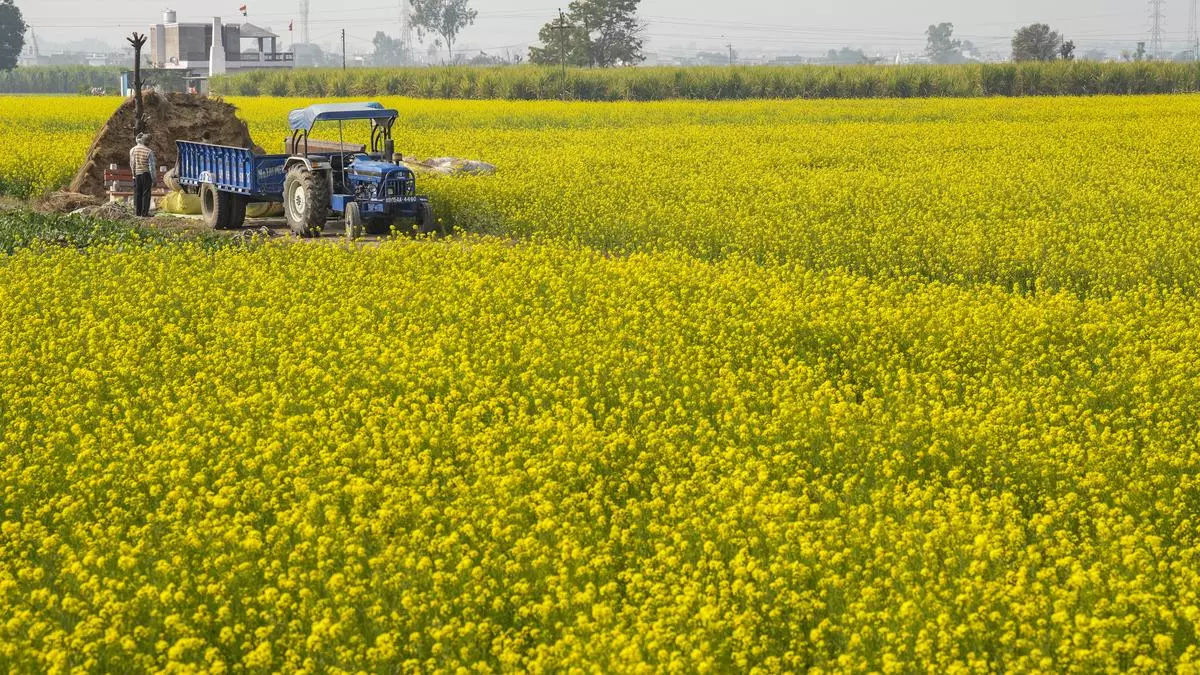Farming a resilient future: Adapting agriculture to a changing climate
Agriculture, the backbone of the world’s fifth-largest economy, is bearing the brunt of the climate crisis, with unpredictable weather, rising temperatures, and shifting rainfall patterns threatening both livelihoods and food security. Smallholder farmers, who constitute 86 per cent of the farming community in India, are among the most vulnerable to climate change and depleting soil health. But they remain the custodians of our food security. Addressing this dual reality requires transformative strategies and collaborative efforts to make agriculture more resilient, sustainable, and equitable.
A report by the Indian Council of Agricultural Research (ICAR) estimates that climate change could reduce crop yields by up to 25 per cent by 2050 if corrective measures are not implemented now. Unseasonal rains and prolonged droughts have already affected key crops like wheat, rice, and pulses, jeopardizing livelihoods and national food security. To mitigate these challenges, it is imperative to adopt resilient agricultural practices that can withstand climate uncertainties while ensuring sustainable productivity.
Over 40 per cent of farmers in our country lack awareness of climate-resilient practices like crop diversification, agroforestry, and sustainable irrigation. This knowledge gap heightens their vulnerability, perpetuating low productivity and financial instability. Bridging this gap requires a paradigm shift, integrating technology, policy, and farmer-focused solutions. Collaborative alliances are essential to train farmers, promote the adoption of best practices, and ensure they are equipped to adapt to changing conditions.
- Also read: From struggle to strength: Technology could hold the key to securing our farmers’ futures
Building resilience: The role of soil health
Healthy soil is the cornerstone of resilient agriculture, yet over-farming, disproportionate input use, and deforestation have severely degraded 30 per cent of India’s agricultural land. This degradation diminishes yields and increases reliance on chemical fertilizers. Promoting meaningful crop rotation, water management, and organic matter replenishment can rejuvenate soil health. Initiatives like the Pradhan Mantri Krishi Sinchayee Yojana (PMKSY) integrate water and soil management but require broader public-private collaboration.
Expanding soil testing services and providing tailored nutrient recommendations, as practised by leading organizations, helps farmers achieve sustainable productivity. This approach enhances soil fertility and builds resilience against climate challenges.
Smart solutions: Embracing agri-tech
Technology is a critical enabler of climate-resilient agriculture. Startups are empowering farmers with data-driven insights through AI-powered platforms that provide predictive analytics on weather patterns, pest outbreaks, and crop health, enabling timely interventions.
Similarly, other platforms connect farmers to markets and advisory services, enhancing their profitability while reducing risk. Moreover, precision farming techniques, such as drip irrigation and sensor-based nutrient and pest management, have demonstrated remarkable results in optimising resource use. The adoption of these technologies must be accelerated through subsidies, training programs, and demonstration projects. There must also be a vigorous emphasis on reducing the use of natural resources, promoting the use of one-shot weed controllers directly seeded in wheat and rice crops.
The power of collaboration
Building resilience also requires a collaborative approach involving government agencies, private enterprises, and research institutions. Public-private partnerships (PPPs) have shown immense potential in bridging resource and knowledge gaps. For instance, the Maharashtra Project on Climate Resilient Agriculture (PoCRA) combines state funding with private expertise to train farmers in sustainable practices, ensuring scalable and replicable impact.
On an international scale, India’s participation in the Coalition for Disaster Resilient Infrastructure (CDRI) underscores its commitment to global collaboration in climate resilience. Lessons from these initiatives can be localized to benefit smallholder farmers, particularly in susceptible regions, where climate vulnerability is acute.
The private and public investment on agricultural research will need to be hiked substantially with clear focus to build climate resilience in agriculture through development of technology and capacity building.
Financial instruments for resilience
Access to credit and insurance is another critical factor in helping farmers weather climate shocks. The Pradhan Mantri Fasal Bima Yojana (PMFBY) has provided crop insurance to millions, but its implementation has faced challenges such as delayed payouts. Scaling up innovative financial products like weather-indexed insurance and climate-resilient loans can address these gaps.
Additionally, investments in farmer-producer organizations (FPOs) can enhance collective bargaining power, enabling smallholders to access better inputs, technology, and markets. Companies like FMC, with their expertise in crop protection and sustainable solutions, can play a pivotal role in equipping FPOs with advanced tools and training. There are also private initiatives like Project Utkarsh, being run by FMC Corporation across 32 villages across India, which also offer a package of good agricultural practices that have delivered enhanced crop productivity while optimising the use of natural resources and inputs without adversely impacting the environment.
The road ahead
As India’s agricultural sector navigates the complexities of climate change, a multi-pronged approach is essential. Policymakers must prioritize climate-resilient infrastructure and provide farmers with continuous capacity-building programs to adopt sustainable practices.
Most importantly, the narrative around agriculture must shift from a story of subsistence to one of resilience and growth. Farmers are both beneficiaries of interventions and partners in the mission for a sustainable future. Their lived experiences, traditional knowledge, and entrepreneurial spirit are invaluable assets in designing solutions that work.
Creating a resilient farming future is a national imperative. As we celebrate National Farmers’ Day, this year’s theme “Delivering Smart Solutions for Sustainable Food Security and Resilience” perfectly encapsulates our collective mission. While we honour farmers’; contributions to our nation’s well-being, we must also commit to empowering them with the tools, knowledge, and support they need to thrive in a changing climate.
The author is Director, Industry & Public Affairs, FMC
